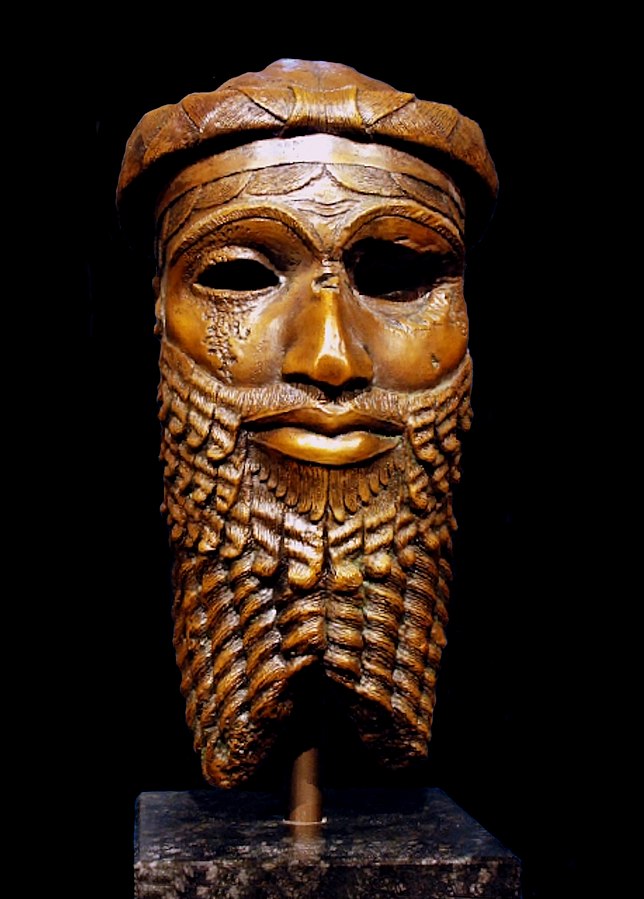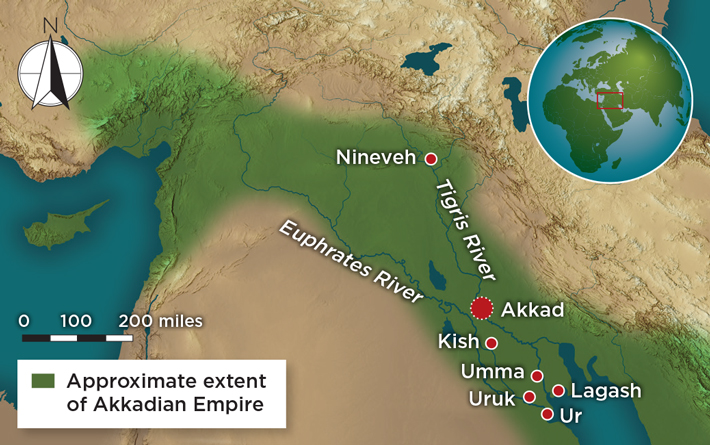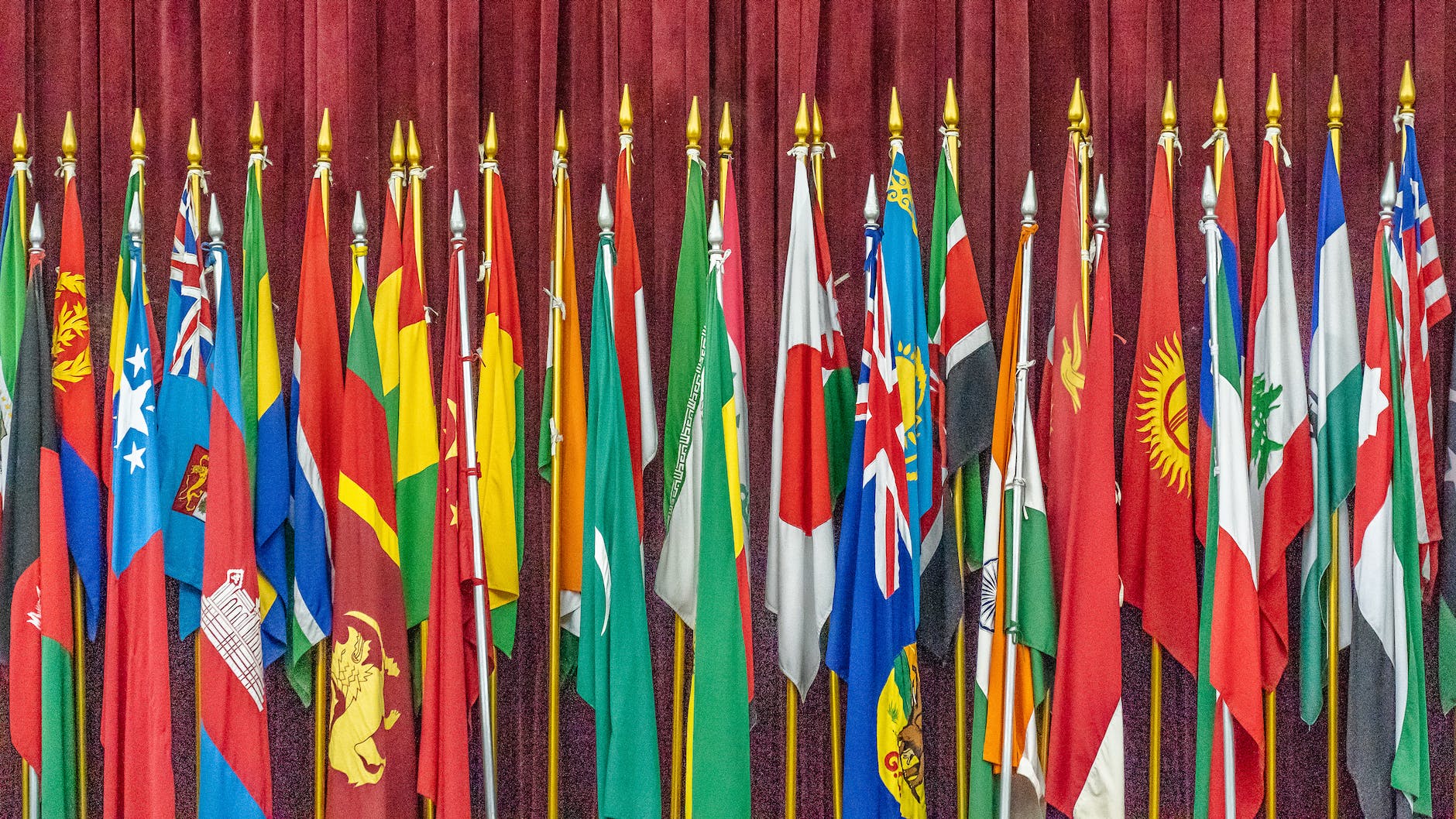
Nimrod may be near the top of one of the most intriguing yet mysterious characters of the Bible. The Old Testament mentions him four times. He is referred to as:
- mighty warrior on the earth (Gen. 10:8, 1 Chron 1:10),
- a mighty hunter before the LORD (Gen. 10:9)
- founder of the Assyrian Empire (Mic. 5:6).
His name has often been found in popular culture: cartoons (Elmer Fudd is referred to as Nimrod), rock music (Green Day named their fifth album, Nimrod), classical music (Edward Elgar has a composition by that name), slang (a term for being stupid), comics (a villain in X-Men that hunts mutants), to name a few. Yet, who is Nimrod? Why is there such interest in him? The ancient Jewish writers Philo of Alexandria (15 BC-AD 50) stated Nimrod to be a giant that opposed God, and Josephus (AD 38-100) suggested Nimrod was the tyrant behind the construction of the Tower of Babel. Here is the most extensive narrative we have about him:
8 Cush was the father of Nimrod, who became a mighty warrior on the earth. 9 He was a mighty hunter before the Lord; that is why it is said, “Like Nimrod, a mighty hunter before the Lord.” 10 The first centers of his kingdom were Babylon, Uruk, Akkad and Kalneh, in Shinar.11 From that land he went to Assyria, where he built Nineveh, Rehoboth Ir, Calah 12 and Resen, which is between Nineveh and Calah—which is the great city.
Genesis 10:8-12
This article will argue that the real identify of Nimrod is Sargon of Akkad (2334–2279 BC), the first empire builder in human history. If this is correct, it holds several keys to understanding how God can overcome the rebellion of man for His purposes. Nimrod’s hunger for power was directed by God to bring a sustainable unity out of a warring anarchy. This advanced the next step of God forming humanity after the image of the Trinity, with the balance of unity in diversity.
Commonalities of Nimrod and Sargon
1. Nimrod and Sargon came from the same region.
Nimrod’s origin is in Cush (a city likely named after his father, Genesis 10:8) which possibly matches Sargon’s origin in Kish (see below), a city in southern Mesopotamia, which is the land between the Tigris and Euphrates Rivers. These areas are considered the same place by many scholars. The Sumerian King List (ancient Sumerian book which lists Sargon) names Kish as the first city on which “kingship was lowered from heaven” after the flood and says it became the leading city of Sumer. Kish eventually did come to dominate the landscape of the surrounding area. Seeing the similarities between Kish and Cush draws the first interesting parallel.

2. Nimrod and Sargon made Akkad a prominent city.
Although scholars don’t know the exact location of Akkad (Genesis. 10:10), ancient texts place it in Babylon and suggest that it became prominent once Sargon made it his capital and restored Kish. From Akkad, Sargon conquered areas to the north, most prominently Assyria. The archaeological record fits with the biblical record of Nimrod’s location and his conquests of Uruk—the center of power in Mesopotamia—from which he extended his rule north.
3. Nimrod and Sargon initiated building projects in Assyria.
The Bible reveals Nimrod built the principal cities of Assyria (vv. 11–12). Archaeological discoveries credit the same accomplishment to Sargon. Inscriptions of Sargon’s rule on monuments have been discovered in the Assyrian cities of Ashur and Nineveh. They also found the remains of a statue dating to the reign of Manishtushu, Sargon’s son and successor. Since Manishtushu was recorded as a less powerful figure, his attaining such stature leads to the strong conclusion that his father had seized power in Ashur.
4. Nimrod and Sargon were legendary for their military exploits.
Genesis 10:9 reads: “He was a mighty hunter before the LORD; that is why it is said, ‘Like Nimrod, a mighty hunter before the LORD.’” The context of this description, “mighty hunter before the LORD,” indicates he was a warrior of skill and military exploits, not just skilled and tracking and killing wild game. Most likely because his prowess as a warrior became legendary, the writer of Genesis could reference a common saying where Nimrod’s legend was told for successive generations. (This would be like referencing legends Muhammad Ali for boxing or General Patton for the military but significantly greater.) Statues discovered in ancient Nineveh display the hunting exploits and military conquests of Assyrian kings. Ancient tombs and columns reveal Sargon was renowned for his military conquests.
Why is he an important figure biblically?
God holds evil on a leash.
Since ancient times, Nimrod (Sargon) has been thought by some, most notably Josephus, as the person who tried to incite those at Babel into the infamous building projects in rebellion against God. (Genesis 11:4) This idea is supported by the name, Nimrod, which means “rebellion against God.” This was likely the name given by the Hebrews and not a birth name. God circumvented this rebellion by confusing the languages. Because of this the people and eventually nations had to spread on the earth, forming different nations, and Israel could ultimately be established. (see Genesis 11:27-32) The promise of blessing to all of the nations could be given through the Jews. As God called Abraham from Ur, this foundational promise was made:
1The Lord had said to Abram, “Go from your country, your people and your father’s household to the land I will show you.
2 “I will make you into a great nation,
Genesis 12:1-3
and I will bless you;
I will make your name great,
and you will be a blessing.
3 I will bless those who bless you,
and whoever curses you I will curse;
and all peoples on earth
will be blessed through you.
God uses rebellion toward his ends.
God was able to take Nimrod’s (Sargon) lust for power and channel it away from Babel for ultimate good in the development of the Akkadian Empire. Before Sargon (Nimrod), conflict was embedded in cities like Ur, Kish, Lagash, etc. There was a state of constant armed warfare. Part of the reason for this is that farmland was needed to nourish their inhabitants. The small tracks of land were necessary to fight for in order to have control. Yet, the only means of rule was by force which did not have long-term sustainability or empire building. There was no cooperation, but to the victors were the spoils. No city had thought of setting up a rule over large territories which could be managed through administration and services which benefitted several territories.
Sargon, who came up from nothing as an orphan, eventually became a cupbearer for the king of Akkad, Ur-Zababa, and in the course of time became king. Akkad stood apart in many ways outside the web of conflicts of the region. This allowed them to employ power differently than the other city-states. They wielded power by starting from different assumptions and realizing different ends. Sargon sought to provide control with stability across territories. He introduced administration and organization which led to the development of trade routes for increased commerce, record keeping for laws, a postal service for protected communication, irrigation canals for agricultural development, standard weights and measures for economic exchange, fairer tax systems for the rich and poor, along with art and culture. All of this was held together by the first standing army which he established.
It has been said that Sargon’s iron fist was in a velvet glove. It was a mixture of unbending strength with administrative skill. He ruled about 55 years. The Akkadian Empire he founded lasted a hundred years in total. Though the empire came to an end, for the next two-thousand years, Sargon became the model of empire building for the Assyrians, Babylonians, Persians and Greeks.
Conclusion
As God was making human civilization more to conform to his image (Trinity), he guided even the rebellion of Nimrod (Sargon) to bring the first model of a civilizational unity that brought and held together a diversity of warring city-states. This was far from a perfect harmony, though. After Sargon’s death, five of the nations revolted against his son, Rimush (r. 2279– 2270 BC). Rimush was killed by palace servants. Manishtushu (r. 2270–2255 BC), his younger brother, came to the throne. His reign lasted about 14 years without any great effectiveness. Manishtushu’s son, Naram-Sin, reigned from 2254 – 2218 BC. He became a greater ruler exceeding the influence of his grandfather, Sargon. Yet, Naram-Sin introduced something new–he claimed to be “God of the Universe.” The introduction of this would be a fatal deception in the heart of humanity making him the first, in a long line, of antichrists since the flood. In a generation after Naran-Sin the Akkadian Empire would be destroyed. Seeds for human maturity and flourishing were sown; even though rebellion was alive and growing. God advances His purposes even alongside man’s lawlessness.
